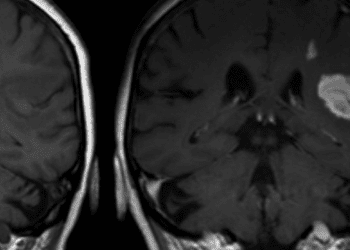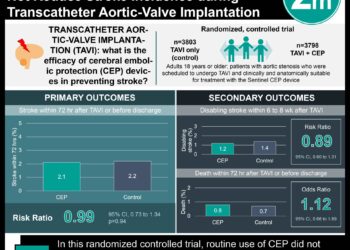Tea consumption is associated with decreased risk of mortality
1. This prospective cohort study found that consuming two or more cups of tea daily was associated with moderately reduced all-cause mortality risk.
2. The addition of milk or sugar to tea did not affect the association between tea and mortality risk.
Evidence Rating Level: 2 (Good)
Study Rundown: Tea is a widely consumed beverage worldwide. The association between tea intake and mortality risk is unclear. While previous studies have suggested an inverse association between tea intake and mortality, most of them have been conducted in populations where green tea drinking is more prevalent. The association between black tea and mortality risk is understudied. In addition, there is a paucity of data on how genetic variation in caffeine metabolism, tea temperature, or the addition of milk and sugar influence the effects of tea intake on mortality risk. The present prospective cohort study used data from the United Kingdom Biobank to evaluate the association between mortality and the consumption of tea. Patients were followed for a median of 11.2 years. Most participants reported drinking black tea. Drinking two or more cups of tea per day was associated with lower all-cause mortality. Similar associations were observed for mortality due to cardiovascular disease, ischemic heart disease, and stroke. The inverse association between tea consumption and mortality risk was sustained after controlling for genetically inferred caffeine metabolism rate and the addition of milk or sugar. Consumption of hot tea was associated with lower mortality risk compared to warm tea. As a limitation, the database tended to enroll healthier participants than the general population due to self-selection bias. In addition, there is measurement error related to self-reporting of daily tea consumption.
Click to read the study in AIM
In-Depth [prospective cohort]: The present prospective cohort study used data from the United Kingdom Biobank to evaluate the association between tea consumption and mortality in adults aged 40 to 69 years registered with the United Kingdom National Health Service. Data on tea consumption (n=498,043) was obtained from a questionnaire at baseline, including the number of cups per day, temperature preference for the tea, and addition of milk or sugar. Participants were followed for a median of 11.2 years. In total, 85% of participants reported drinking tea, with most drinking two to three cups daily. A subset of participants underwent an additional 24-hour dietary recall questionnaire which revealed that 89% of tea drinkers consumed black tea (49,997 out of 56,066 respondents). During the study, 29,783 deaths occurred. The reduction of all-cause mortality risk was associated with the number of cups of tea consumed per day, with benefits beginning at two to three cups (Hazard Ratio [HR], 0.87; Confidence Interval [CI], 0.84 to 0.98). The association remained significant in a multivariable model, including age, sex, smoking, and general health. In a subset of participants that reported adding milk and sugar (n=210,058), there was also an inverse association between tea consumption and all-cause mortality. The association also remained significant after accounting for a composite genetic score of genes involved in caffeine metabolism. Results from this study suggest that tea drinking may have a moderate benefit on the risk of all-cause mortality. Further studies are necessary to elucidate the specific mechanisms.
Image: PD
©2022 2 Minute Medicine, Inc. All rights reserved. No works may be reproduced without expressed written consent from 2 Minute Medicine, Inc. Inquire about licensing here. No article should be construed as medical advice and is not intended as such by the authors or by 2 Minute Medicine, Inc.







